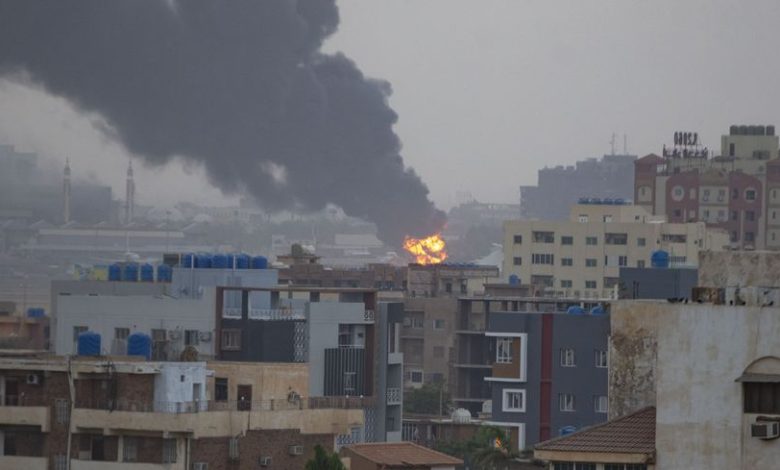How do Washington sanctions impact the Sudanese conflict?

Since the beginning of the armed conflict crisis in Sudan, last mid-April, the United States of America has used the weapon of sanctions against the two parties to the conflict, especially with the negotiations repeatedly stalled and diplomatic efforts at the international and regional level failed to contain it or pass an interim agreement.
Economic sanctions
In the latest developments, the United States announced on the first of this current June the imposition of economic sanctions and visa restrictions on the conflicting parties in Sudan, in a measure that observers have read as a beginning to put Sudan back on the list of terrorism or to stop economic and political dealings with it, while others considered it only a limited-effectiveness measure in light of the escalating crisis.
White House National Security Advisor Jack Sullivan said in a statement last Thursday that the violence in this country is “a tragedy that must stop,” without providing further details on the sanctions.
U.S. Secretary of State Antony Blinken referred in a separate statement to actions taken “in response to the Sudanese military and RSF’s noncompliance with their obligations,” specifically condemning “looting, attacks on civilian homes and infrastructure, aerial bombardment and artillery, and obstruction of humanitarian assistance.”
Conflict in Sudan
In a related context, sources spoke to Reuters about imposing economic sanctions on companies accused by the United States of fueling the conflict in Sudan, and increasing pressure on the army and the rapid support forces to stop the fighting in Khartoum and other areas.
The U.S. Treasury Department said it targeted two companies linked to the Sudanese military and two companies linked to the Rapid Support Forces, including one involved in gold mining.
“We will not hesitate to take additional steps if the parties continue to destroy their country,” a senior administration official told reporters on condition of anonymity.
“Targeting businesses is not at all symbolic,” the official said, adding that the measures are aimed at preventing both sides from gaining the weapons and resources that allow them to perpetuate the conflict.
Introduction to Heavier Procedures
Commenting on the sanctions, Dr. Tariq Fahmy, Professor of Political Science at Cairo University said: “The US imposing sanctions on a group of companies affiliated with the Sudanese army and the rapid support will not deter the two sides in the conflict in Sudan from stopping fighting, and there are speculations that things might go otherwise.
The political science professor pointed out that determining the nature of the negotiations and the main problem is linked to what the United States, which imposed the sanctions, is proposing as a first step to convey the message that the threats are of a kind of coercion, and the other thing is related to what might lead to the continuation of military operations, especially since the Rapid Support Forces insist on continuing the scene. Therefore, the issue is not in the process of changes, but rather has to do with the American pressure on humanitarian aid and turning it into a security and military truce.
Fahmy said the US administration has more punitive measures; One possibility is that Sudan might be returned to the terrorism list, and Blinken’s visit would have serious consequences for both the Sudanese military and quick support.











